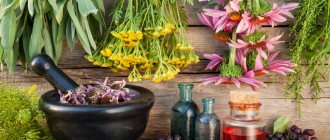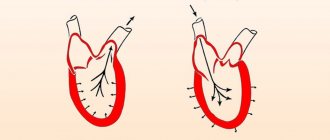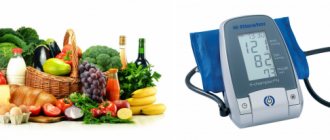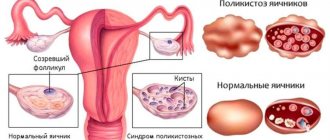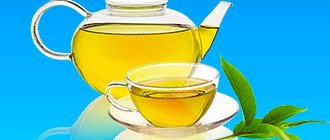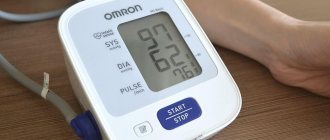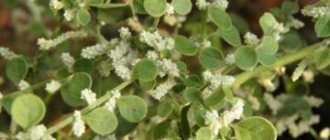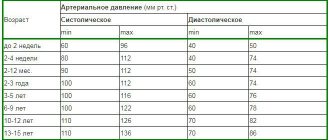Is herbal medicine effective for hypertension?
Although the effectiveness of herbal preparations is limited, some herbs can actually be used to lower blood pressure because they have the following pharmacological effects:
- diuretic effect;
- decrease in total peripheral vascular resistance;
- decrease in heart rate and strength with a drop in ejection fraction;
- normalization of the rheological properties of blood (decrease in the number of atherogenic lipids and glucose in the blood, increase in cholesterol).
- suppression of the activity of the sympathetic nervous system.
- changes in the course of biochemical processes in the brain.
The effect on the body is always individual and depends on the specific plant.
Herbal infusions - 3 recipes
There are many herbal infusions and other folk remedies that help lower blood pressure and improve the overall prognosis for hypertension. They can be prepared at home. Below are the most effective and common ones.
Collection No. 1
The following ingredients will be required:
- motherwort herb – 4 tbsp. l.;
- hawthorn berries 1 tbsp. l.;
- mint leaves - 0.5 tbsp. l.;
- strawberry leaves - 1 tbsp. l.;
- dried dried fruit – 1 tbsp. l.;
- dill seeds – 1 tbsp. l.;
- flax seeds – 2 tbsp. l.
The resulting mixture of herbs is placed in a thermos or a glass jar tightly wrapped in wool and filled with 1000 ml of boiling water. The solution must sit for 6 hours. The decoction is consumed 1 glass (200 ml) 30 minutes before meals 3 times a day. Duration of therapy is about 2 months.
Collection No. 2
To prepare, you need to take equal parts of chamomile and calendula flowers, motherwort herb, oregano, string, black currant leaves (can be replaced with fruits), and dill fruits. The resulting dry mixture is thoroughly mixed.
Cooking instructions: 2 tbsp. l. pour 500 ml of hot water and let it brew for about one hour. Use 100-150 ml with 1 tsp. natural honey. You can take no more than 500 ml of solution per day. The duration of treatment is up to 30 days.
Collection No. 3
The following ingredients are required:
- motherwort herb – 4 tsp;
- marsh cudweed (grass) -2 tsp;
- lemon balm leaves - 1 tsp;
- hawthorn fruits – 1 tsp;
- chokeberry fruits – 1 tsp.
All components are poured into 0.5 liters of boiling water and infused in a thermos for 6 to 8 hours.
Before use, the infusion is carefully filtered and taken 150 ml 3 times a day 30-40 minutes before eating. Duration of use – up to 1.5 months.
Collection No. 4 from cudweed and motherwort
To prepare, you need to take 3 parts each of motherwort and marsh cudweed herbs, 2 parts horsetail and wild rosemary herbs, 1 part buckthorn bark. 2 tbsp. l. herbal raw materials are poured with 500 ml of boiling water and simmered over low heat for about 15 minutes.
Then the broth is poured into a dark jar and infused for about 4-5 hours. You should drink 100 ml 3 times a day 45 minutes before meals.
Herbal cocktails to stabilize blood pressure
After the doctor has made a diagnosis, prescribed treatment and peak pressure surges are behind, herbal remedies will help maintain a stable condition. In addition, their regular use will have a positive effect on the general condition of a person.
Herbal mixture is a mixture of several types of crushed herbs. Sometimes whole natural raw materials are used. If the plants are dry, you can grind them by hand or in a coffee grinder. When using green ingredients, they must be cut into small strips with a knife.
Natural mixtures include herbs of various effects:
- to stabilize pressure;
- antioxidant plants;
- for lowering cholesterol;
- reducing prothrombin levels.
Herbal cocktail No. 1
Compound:
- Three parts each of motherwort and peppermint.
- Two parts each of lemon balm and juniper.
- One part dry dill.
Preparation:
- Mix all the ingredients of the herbal cocktail.
- Take 2 tablespoons of the mixture and put it in a jar, pour a liter of boiling water.
- Leave for 3-4 hours. Filter.
Use:
Drink 100 ml twice a day: half an hour before meals or 30 minutes after meals.
Herbal cocktail No. 2
Compound:
- 3 parts rose hips;
- Two parts each of frozen currants and rowan berries;
- 1 part dried nettle.
Preparation:
- Place all the components of the collection in a thermos and add 1.5 liters of boiling water.
- Leave for 2 hours.
Application:
Drink the prepared portion throughout the day.
Review of pharmaceutical drugs
There are several hundred herbal remedies for lowering blood pressure on the pharmaceutical market. Will consider several of the most popular representatives.
Health King herbal tea
A long-acting product, the main components of which are the roots of salvia and peony, scrofularia and perennial, green tea and mulberry leaves, magnolia bark, jasmine.
Tea is indicated for lowering blood pressure and strengthening the heart muscle by normalizing metabolism in cardiomyocytes.
Before use, pour 1-2 filter bags with 200 ml of boiling water and let it brew for 3-5 minutes. You can drink 2 glasses a day for 14 days, then a break is required for 10 days. Courses of treatment can be repeated an unlimited number of times.
BP-minus
The drug contains buckwheat inflorescences, marsh cudweed, cherry stalks, ascorbic acid and rutin (vitamin P).
Helps normalize blood pressure, is a means of preventing “jumping” pressure and the development of hypertensive crises.
The dosage regimen is as follows: 1 tablet 2 times a day during meals. Duration of therapy is 14 days. A second course can be repeated after 2 months.
Evalar BIO antihypertensive herbs
The basis of the medicine is black currant leaves, flowers and leaves of hawthorn, chokeberry fruits, lemon balm herb and peppermint leaves. All ingredients are grown on the Altai plantations of the manufacturer.
Regular consumption of tea is recommended to maintain blood pressure levels and prevent vascular accidents. It also helps relieve symptoms of fear and anxiety, and overall calm the body.
To prepare the drink, you need to fill 1 filter bag with 200 ml of boiling water and let it brew for 30 minutes. Take 200 ml 2 times a day (half an hour before meals).
Effective recipes for normalizing blood pressure
To achieve a hypotensive effect, herbs for high blood pressure are used. The following plants are considered the most useful:
- Valerian. The roots of the plant effectively lower blood pressure due to its vasodilating properties. Valerian is used to prevent stroke and heart attack and improves blood circulation. Root-based remedies will help with hypertension caused by stress, as they have a calming effect on the nervous system. An alcoholic tincture of valerian is suitable for one-time use, and an aqueous one for a course. Side effects: increased fatigue, drowsiness, slow reaction. With long-term therapy, diarrhea is possible. Contraindications: depression, pregnancy, lactation.
- Motherwort. The herb has sedative and vasodilating properties and effectively lowers blood pressure. The plant helps treat insomnia and neuroses, eliminate tachycardia and angina. It is used in the form of a water or alcohol infusion. Side effects: heaviness in the stomach, nausea, decreased concentration. Contraindications: gastritis, gastric ulcer, pregnancy, lactation, childhood.
- Peony. The hypotensive effect of the evading peony is provided by antispasmodic and sedative properties. Plant-based products lower blood pressure in hypertension caused by disorders of the nervous system. Peony is poisonous, so it is necessary to strictly follow the dosage of water or alcohol tincture. Side effects: lethargy, drowsiness, increased stomach acidity, skin rash. Contraindications: childhood, liver/renal failure, pregnancy, breastfeeding.
- Melissa. The leaves have a sedative effect, mild antiarrhythmic, vasodilating, antispasmodic properties. Melissa lowers blood pressure during neuroses, stress, vegetative-vascular and neurocirculatory dystonia. For medicinal purposes, tea or alcohol tincture is used. The plant has no strict contraindications or side effects. Use with caution during pregnancy and breastfeeding, in case of renal failure, acute form of intestinal and stomach ulcers.
- A series. The herb has diuretic properties, eliminates swelling, and lowers blood pressure. The series is used as an additional remedy in the treatment of hypertension. It is recommended to drink herbal tea. Side effects: sweating, increased urge to urinate, tachycardia (rare). Contraindications: individual intolerance, pregnancy.
Valerian root tincture
Based on valerian root, you can prepare 2 types of tincture:
- On alcohol. Valerian root needs to be crushed. Mix the ingredient with a 70% alcohol solution. For 1 g of root you will need 5 ml of liquid. Infuse the medicine for 2 weeks. Take 20 drops three times a day. Dosage for one-time use – 30–40 drops.
- Water. Combine the components in the proportion of 1 g of crushed root per 25 ml of liquid. Boil the mixture in a water bath for 30 minutes. Pour into a jar, close tightly, leave for 2 hours. Drink 1 tbsp. l. 3 times/day.
Peony infusion with vodka
Take dried peony root and vodka. Combine the components in a ratio of 1 g of plant per 5 ml of alcoholic drink. Leave for 20 days. Every 2-3 days the product needs to be shaken. Take the finished tincture 15 drops twice a day. For one-time use, the dosage is 20 drops.
Decoction of string
Combine 1 tsp. dry string grass and 1 tbsp. boiling water Place the product on low heat and leave for 10 minutes. Strain the resulting hot drink and cool at room temperature. The decoction involves course use - you need to drink 1-2 tbsp. daily.
Alcohol tincture of motherwort
Combine motherwort herb with 70% alcohol in a ratio of 1 g of plant per 5 ml of alcohol. Leave the product for 1 month. For course use, you need to drink 30 drops three times a day. Dosage for one-time use – 40 drops.
Melissa and mint leaf tea
Take 1 tsp. lemon balm and mint leaves. Mix the ingredients and pour 1 tbsp. boiling water Brew tea for 10-15 minutes. The drink should be consumed 1-2 cups/day. If you feel sleepy, drink tea in the afternoon.
Contraindications
Before starting treatment, you must familiarize yourself with the list of contraindications and possible adverse reactions. This will avoid adverse consequences. It is also advisable to consult a doctor. Only a specialist can adequately assess the general state of health and the advisability of prescribing herbal medicine.
If we consider the list of contraindications as a whole (for most plants), it will look like this:
- Individual hypersensitivity to individual components of plant materials. Allergies occur to any plant and are usually expressed in the form of local irritation of the skin and mucous membranes, urticaria. However, it is possible that symptoms of anaphylactic shock or Quincke's edema may appear.
- Arterial hypotension (including orthostatic). An additional decrease in blood pressure can lead to depression of consciousness (stupor, stupor, coma) and disorders of the blood supply to organs.
- Peptic ulcer of the stomach and duodenum. Acute infectious diseases of the gastrointestinal tract. Most plants reduce platelet aggregation and coagulation and promote “breakthrough of the bicarbonate barrier” of the gastric mucosa. As a result, life-threatening bleeding may develop.
- Pathologies of the vascular bed with a high risk of the formation of thrombotic masses (varicose veins of the lower extremities, thromboangiitis obliterans, hemorrhoids).
- Any deviations in hemostasis that occur as a result of hypocoagulation (leukemia, thrombophilia).
- Diseases of the liver and kidneys with symptoms of functional failure. Slow elimination of plant components from the body is fraught with intoxication.
- Arrhythmias (AV block, bundle branch block, sinus bradycardia, pacemaker displacement).
When using drugs together with other medications that have an antihypertensive effect, consultation with a specialist is necessary.
5 more tips
Treatment of arterial hypertension should always have a comprehensive approach. To increase the effectiveness of herbal medicine, the following recommendations should be followed:
- To give up smoking. Cigarette smoke is one of the key risk factors for the development of atherosclerosis and coronary heart disease. After inhaling toxic substances twice, a sharp jump in blood pressure is observed, which lasts for 15 minutes.
- Loss of body weight. Hypertension is extremely closely related to excess weight, the reduction of which by just 1 kg can reduce the level of systolic blood pressure by 2-4 mm. rt. Art., and diastolic by 1-2 mm. rt. Art.
- Quitting alcohol. With a total consumption of pure ethanol per week of more than 140 g for men and 80 g for women, the risk of developing a stroke (mainly hemorrhagic) increases by more than 2 times.
- Frequent physical activity. It is necessary to train 3-5 times a week. It is advisable to give preference to outdoor activities (coniferous forests, country parks, etc.). To reduce the risk of fatal complications and death from cardiovascular disease, patients with hypertension are recommended to engage in exercises such as walking, jogging, swimming, and cycling for at least 30 minutes a day.
- Reducing salt intake. The proportion of sodium chloride in the diet should not exceed 3 g. With excessive amounts, an increase in blood pressure and the frequent development of hypertensive crises are observed.
The described methods of non-drug treatment can slightly reduce blood pressure, increase the effectiveness of herbal medicine, and reduce the need for antihypertensive drugs. Changing your lifestyle is the main way to prevent cardiovascular diseases!
What herbs lower blood pressure
Compositions containing herbs are prescribed depending on the effect on the body and the direction of action. Plants that lower blood pressure are divided into several groups:
- vasodilators;
- calming;
- with a strong hypotensive effect;
- diuretics.
Antihypertensive herbs for high blood pressure
Herbs in this group can quickly and effectively lower blood pressure. Decoctions and infusions based on them are recommended for blood pressure levels above 180/100 mm. Hg Art. The following have a strong hypotensive effect:
- mint;
- mistletoe;
- sweet clover;
- Adonis;
- motherwort;
- hawthorn;
- chokeberry;
- valerian root;
- cottonweed;
- skull cap
Vasodilators and antispasmodics
Plants lower blood pressure due to their ability to relieve vascular spasms and improve blood circulation. This group includes the following medicinal herbs:
- dill;
- fennel;
- anise;
- yarrow;
- dandelion;
- caraway;
- periwinkle.
Sedatives
Plants with such an effect help eliminate the neurogenic factor, reduce psychological stress, and improve resistance to stress. They have sedative properties:
- calendula;
- valerian (root);
- Melissa;
- Linden blossom;
- mint;
- oregano
Herbs that thin the blood and reduce blood pressure
Some medicinal herbs for blood pressure can thin the blood, preventing the formation of blood clots. This effect is typical for the following plants:
- raspberries;
- leaves of willow, nettle, black currant;
- sea buckthorn fruits;
- red grape flowers.
Article on the topic: Brown-Séquard syndrome - a serious blow to the spinal cord
With a diuretic effect
For chronic hypertension, herbal remedies with a diuretic effect are recommended. They help lower blood pressure and relieve swelling. Diuretic herbs used:
- hop cones;
- dandelion root, celery;
- parsley;
- rose hip;
- Melissa;
- calendula.

